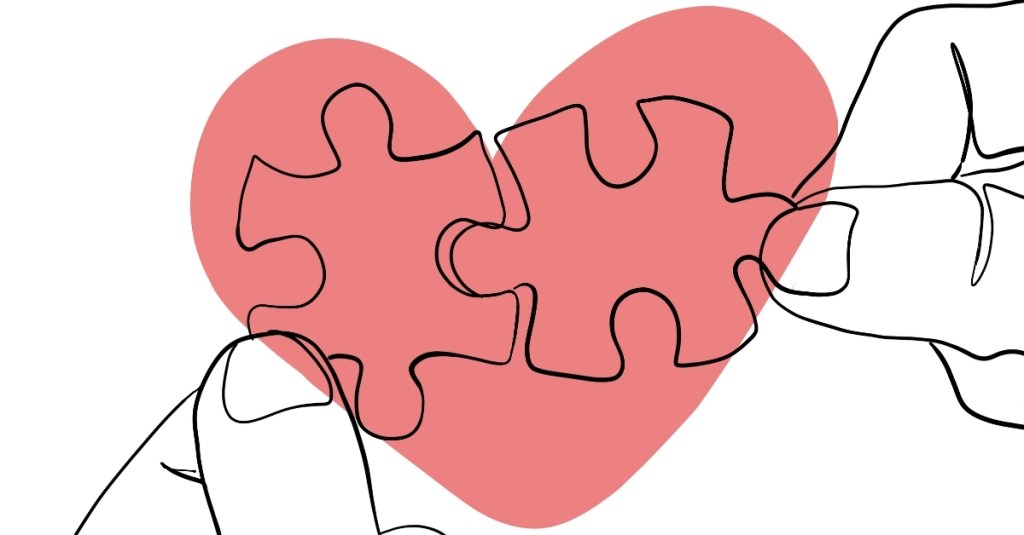Feeling lonely in a relationship is one of the most difficult experiences, yet one many of us know all too well. In fact, for a while, I preferred my solitude over dating for this very reason.
However, loneliness is a common feeling in even the healthiest relationships. It can be caused by various factors, from a lack of emotional and physical intimacy to busy lives and conflicting schedules. Still, this relationship dilemma requires addressing.
Videos by VICE
Many people suffer in silence, while others look to open their relationship. In fact, a recent survey by the dating app Flirtini found that one in four individuals who try polyamory do so because they lack love, connection, and romance.
“Sexual and emotional needs aren’t just ‘nice to have’—they’re essential parts of our mental and emotional stability,” said Anastasiya Pochotna, a relationship and dating expert at Flirtini. “But, unmet needs don’t always mean we want new partners. Sometimes we just want more of what we already have.”
Rather than chalking your loneliness up to normal dating woes, it’s important to communicate with your partner. You both deserve to feel fulfilled and supported in your relationship. Here are four ways to prevent and address disconnection in your relationship.
1. Regularly check in with yourself and your partner
Touching base with your partner is a great way to ensure you’re on the same page and both meeting each other’s needs. However, before doing this, you must first connect with yourself, understanding your own desires and whether they’re being fulfilled.
“Take 15 minutes to write down what connection means to you,” Pochotna recommended. “Is it more about touch? Longer conversations? Feeling more desired? Then share your lists and talk about it—honestly and kindly.”
From there, you and your partner can discuss what might be missing and how you can bridge the gap.
“This simple conversation can help you move from silent frustration to real understanding,” she said. “Needs change over time—stress, work, or kids can shift what we need. Checking in regularly helps you both stay close and avoid drifting apart.”
2. Create ‘intimacy moments’
Sometimes, love and connection are found in the simplest of moments. By showing up for each other in small ways, you can cultivate more closeness and intimacy.
“You don’t need big romantic dates to feel close,” Pochotna said. “Try sending a sweet voice note during the day, hugging for a few extra seconds, or turning off your phones before bed for a 5-minute check-in. These small moments tell your partner, ‘you matter.’”
“Real foreplay begins way before the bedroom,” she continued. “It’s in the kind words, the coffee made for you in the morning, the ‘thinking of you’ texts.”
The common denominator of every healthy relationship is emotional safety. Without it, you’re bound to feel lonely, misunderstood, and unfulfilled.
“[Emotional safety] makes physical closeness feel more natural,” Pochotna said. “When you feel seen and supported emotionally, it’s much easier to open up physically as well.”
3. Prioritize non-sexual physical touch
Oftentimes, when someone thinks of physical touch in a romantic context, they immediately think of sex. However, non-sexual physical gestures are just as, if not more, important to creating a sense of safety and intimacy.
“Touch doesn’t always have to lead to sex,” Pochotna pointed out. “Try giving each other a short massage, cuddling while watching a movie, holding hands, or even showering together.”
This also communicates to your partner that you’re not just in it for the sex. While that might be an important part of your relationship, it isn’t—and shouldn’t be—everything.
“It’s about feeling physically close without pressure,” Pochotna said. “Our brains link touch with safety and love. When it’s missing, we can feel distant—even if we still care deeply for each other.”
4. Explore your desires
In addition to having your emotional needs met, you can address loneliness by exploring your sexual needs and desires, too.
“Read an erotic story to each other, take a fun ‘yes/no/maybe’ quiz online, or share fantasies with no pressure to act on them,” Pochotna recommended. “This can help you reconnect and discover new sides of each other.”
Many people confuse boredom with loneliness. By spicing things up, you can keep your relationship exciting and stimulating—in more ways than one.
“Feeling bored doesn’t always mean you’re mismatched—often, it just means you need a little play and exploration again,” Pochotna said.
More
From VICE
-

De'Longhi Dedica Duo – Credit: De'Longhi -

We Are/Getty Images -

Photo by tang90246 via Getty Images -

Credit: SimpleImages via Getty Images
